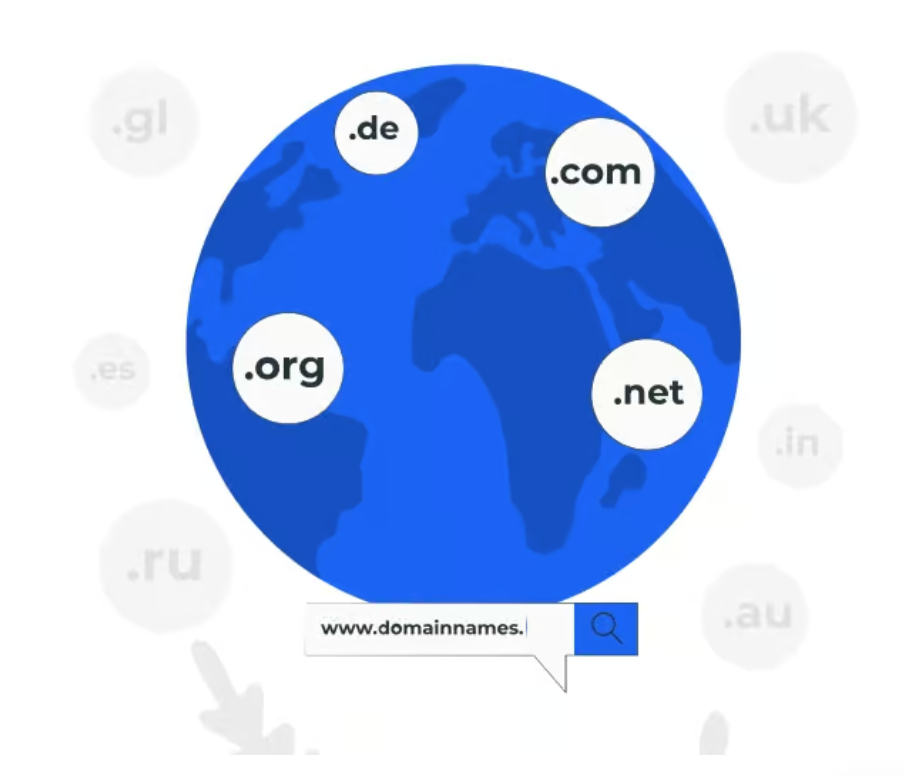Published
|Last updated
Gtld
Find out what gTLD means - in online marketing. Click and read more.
Published
|Last updated
Find out what gTLD means - in online marketing. Click and read more.
![What is gTLD - Definition [Marketing Dictionary]](/assets/img/dictionary-background.webp)
What is gTLD
gTLD - is a Generic Top-Level Domain in the hierarchy of the Internet domain name system. gTLDs are one type of TLD (Top-Level Domains) and include extensions that are not associated with specific countries. Examples of gTLDs include .com, .org, .net, .info, .biz and many others, including newer, more descriptive extensions like .app, .blog or .photography.

The gTLD domains were introduced by the Internet Assigned Numbers Authority (IANA) to organise the naming of websites on a global scale. The first gTLDs were created in the 1980s, and their number and variety have grown as the internet has evolved. In 2012, ICANN (Internet Corporation for Assigned Names and Numbers) initiated a programme that allowed new gTLDs to be introduced, increasing their number and diversity.
ccTLD (Country Code Top-Level Domain): functional national domains are assigned to individual countries. Country code domains are e.g. .pl for Poland, .de for Germany, .uk for the UK.
sTLD (Sponsored Top-Level Domain): sponsored top-level domains represent specific communities, e.g. .edu for educational institutions, .gov for government, .mil for the military.
Choosing the perfect domain is an important step in establishing an online presence for your brand or business. gTLDs are generic top-level domains that are not restricted to specific countries, such as .com, .org, .net, as well as newer extensions like .app, .blog or .tech. Here are the key points to consider when choosing a gTLD domain:
Brand compatibility: Choose a domain name that is consistent with your company or brand name. This will make it easier for customers to find and remember you.
Short and easy to remember: Short names are easier to remember and less likely to make a mistake when typing in an address.
Avoid confusing characters: Avoid using confusing characters such as hyphens or numbers, which can be easily confused or misunderstood.
Keywords: Consider using keywords in your domain name, which can help with SEO (Search Engine Optimisation).
Extension: Choose a gTLD extension that best fits the nature of your business. For example, .com is universal, .tech could fit a technology company and .shop for an online shop.
Brand protection: Consider registering different domain variations and similar extensions to protect your brand from competition and cybersquatting.
Availability check: Use the domain checker tool to ensure your chosen name is available.
Once you have made your choice, proceed to register the domain through an accredited registrar. Choosing the right gTLD domain is fundamental to building a strong and recognisable online presence.
To register the gTLD domain of your choice, you need to use an accredited domain registrar. The registration process usually involves searching for the availability of the name, selecting registration options (length of term, contact details) and making payment. Some gTLD domains may require additional criteria to be met. It is worth remembering that once a domain is registered, the domain holder is obliged to renew the registration before the expiry of the selected period in order not to lose the rights to the domain name. In addition, for domains with special extensions, additional requirements or restrictions may apply.
The choice of domain name can have an impact on SEO (Search Engine Optimisation) and positioning of a website in search engines. Although gTLD domains themselves are not a direct ranking factor, the keywords in the domain name and its history and reputation can influence visibility in search results. In addition, ccTLD domains may be preferred in local search results for a particular country.
❤️ Spread the word! ❤️
Found this guide valuable? Share it with your colleagues to help them boost their local marketing results too!
Powered by Localo 2026